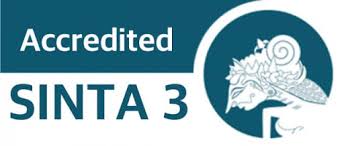Pengaruh Penggunaan Metode Mind Mapping Terhadap Hasil Belajar Siswa Kelas IV MI Al-Abror Pandansili Mojokerto
DOI:
https://doi.org/10.54069/attadrib.v5i1.188Keywords:
Mind Mapping Method, Learning Outcomes, Madrasah IbtidaiyahAbstract
This research is motivated by the low student learning outcomes because most teachers teach by using learning methods that are less efficient. So the researchers conducted learning research using the mind mapping method. The results of this study indicate that based on the calculation of the ANOVA test, for learning outcomes obtained the value of Sig. of 0.009. Value of Sig. < 0.05 then is accepted. So it can be concluded that there is an effect of the mind mapping method on the learning outcomes of fourth-grade students on Economic Activities. from the test of student learning outcomes in the experimental class and the control class in social studies subjects on the application of the mind mapping method at MI Al-Abror Pandansili Mojokerto in the form of 25 multiple choice questions that have been tested for validity.
Downloads
References
Arifin, Z. (2014). Pendidikan Islam Dalam Perspektif Filsafat Ilmu. Ta’dib: Jurnal Pendidikan Islam, 19(01), 123–142. https://doi.org/10.19109/td.v19i01.12
Arifin, Z. (2018). Manajemen Pengembangan Kurikulum Pendidikan Islam: Teori dan Praktik. Almuqsith Pustaka.
Arikunto, S. (1983). Prosedur penelitian: Suatu pendekatan praktik. PT. Bina Aksara, Jakarta.
Barnoto, B. (2020). Merespon Perubahan Dalam Pemenuhan Kebutuhan Sumber Daya Manusia Di SMP Negeri 1 Pacet. Munaddhomah: Jurnal Manajemen Pendidikan Islam, 1(1), 1–10. https://doi.org/10.31538/munaddhomah.v1i1.27
Darim, A. (2020). Manajemen Perilaku Organisasi Dalam Mewujudkan Sumber Daya Manusia Yang Kompeten. Munaddhomah: Jurnal Manajemen Pendidikan Islam, 1(1), 22–40. https://doi.org/10.31538/munaddhomah.v1i1.29
Djamarah, S. B. (2000). Guru dan anak didik dalam interaksi edukatif. Rineka Cipta.
Djamarah, S. B. (2004). Pola komunikasi orang tua dan anak dalam keluarga (sebuah perspektif pendidikan Islam). Rineka Cipta.
Hasanah, M., & Maarif, M. A. (2021). Solusi Pendidikan Agama Islam Mengatasi Kenakalan Remaja Pada Keluarga Broken Home. Attadrib: Jurnal Pendidikan Guru Madrasah Ibtidaiyah, 4(1), 39–49. https://doi.org/10.54069/attadrib.v4i1.130
Huda, A. M., & Rokhman, M. (2021). The Strategy of the Principal in Improving the Quality of Institutional Education. Attadrib: Jurnal Pendidikan Guru Madrasah Ibtidaiyah, 4(2), 72–80. https://doi.org/10.54069/attadrib.v4i2.142
Ikramullah, I., & Sirojuddin, A. (2020). Optimalisasi Manajemen Sekolah Dalam Menerapkan Pendidikan Inklusi di Sekolah Dasar. Munaddhomah: Jurnal Manajemen Pendidikan Islam, 1(2), 131–139. https://doi.org/10.31538/munaddhomah.v1i2.36
Kwok, S. Y. C. L., & Fang, S. (2022). A longitudinal study of the impact of parental discipline on wellbeing among primary school students in China: The roles of school attachment and growth mindset. Child Abuse & Neglect, 124, 105435. https://doi.org/10.1016/j.chiabu.2021.105435
Ma’arif, M. A., Zuana, M. M. M., & Sirojuddin, A. (2022). Improving Islamic Self-Motivation for Professional Development (Study in Islamic Boarding Schools). In Supporting Modern Teaching in Islamic Schools. Routledge.
Rakhmat, J. (1985). Psikologi Komunikasi. Remaja Rosdakarya.
Wahyuni, S., & Bhattacharya, S. (2021). Strategy of Islamic Religious Education Teachers in Increasing Student Learning Motivation. Tafkir: Interdisciplinary Journal of Islamic Education, 2(2), 229–249. https://doi.org/10.31538/tijie.v2i2.22
Zakariyah, Z., Fauziyah, U., & Kholis, M. M. N. (2022). Strengthening the Value of Religious Moderation in Islamic Boarding Schools. Tafkir: Interdisciplinary Journal of Islamic Education, 3(1), 20–39. https://doi.org/10.31538/tijie.v3i1.104
Downloads
Published
How to Cite
Issue
Section
License
Copyright (c) 2022 Rif'an Fauzi, Syahnaja Syahnaja

This work is licensed under a Creative Commons Attribution-ShareAlike 4.0 International License.





